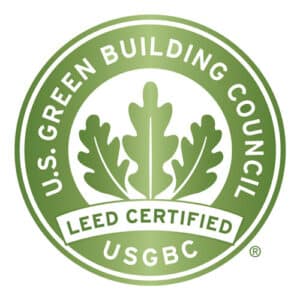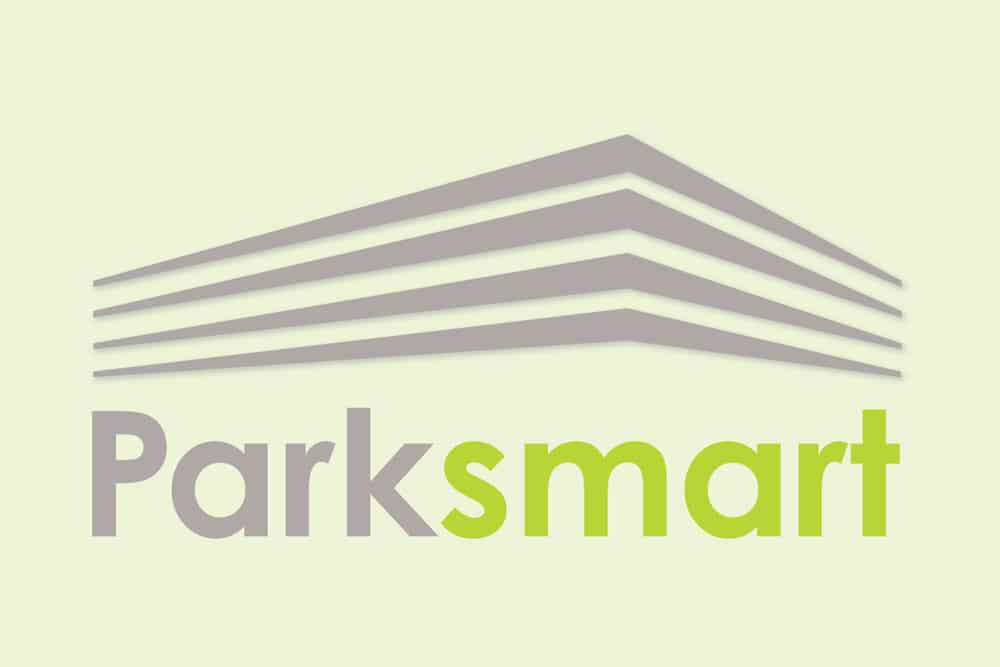The Green Impact
I
Sustainable practices are not new to the parking and mobility industry. Over the past few decades, sustainable construction emerged to limit the impacts of the built environment. Almost a decade ago, IPMI partnered with the U.S. Green Building Council (USGBC) to establish Parksmart certification for parking garages. Parksmart is the world’s only rating system designed to advance sustainable mobility through smarter parking structure design and operation. This rating system complements and supports building projects pursing LEED certification, the standard for defining a green building and encouraging sustainable practices design and development by means of tools and criteria for performance measurement. The LEED building rating system encourages environmental commitment to all stakeholders and LEED certified projects achieve the Triple Bottom Line (TBL) with the evaluation of the building impacts on People, Planet and Profit. IPMI, in partnership with the USGBC, awards Parksmart certifications to parking facilities with sustainable building and operational practices that meet the rigorous requirements of Parksmart.
In my role as director of transportation and parking services on a university campus, I work closely with our facilities development, management, and planning department. This department is comprised of campus architects, planners, and project managers working on a multitude of building and construction projects. I feel very privileged to have a partnership with this group, as it provides the opportunity to work in coordination through a holistic integrative approach to make environmentally responsible decisions, one of the many principles of green building.
Cal Poly’s campus master plan includes a lot of building over the coming decades. It strategically plans to implement more green building practices on campus to reach campus sustainability goals. These sustainable goals have a direct impact on the future of parking and mobility on campus and the surrounding community. Historically, conventional building site selection did not pay attention to the accessibility to mass transit, shared parking, and mobility services. Sustainable practices connect the opportunities to develop buildings near mass transit and encourage more efficient means of transportation. The goal is to build sustainably while reducing vehicle trips and promoting sustainable alternatives. Regularly, much to the dismay of students, faculty, and staff, I refer to our campus master plan as a reminder that our campus sustainability goals do not include building more parking.
As we have been implementing our campus master plan, a key operational gap was identified. The gap was that the campus had very few LEED accredited professionals. A decision was made that as an integral part of reaching our campus sustainability goals, educating the staff involved in campus building projects on LEED practices was necessary. Professionals from every sector should be well educated and equipped to the “know how” to face these future building challenges, and this is exactly what makes LEED certification important and worthy. This would give those of us involved in decisions related to future building and construction the opportunity to expand our knowledge of LEED practices and the opportunity to test for LEED Green Associate certification.
The campus hired a LEED expert, vetted by the USGBC, to educate a group of staff members on green building and practices as it pertains to the LEED rating system. The LEED Green Associate training was broken down into the following topics: Sustainability in the 21st Century; Introduction to LEED; and review of the seven categories in LEED certification. These topic sections reviewed traditional vs. sustainable practices and its relation to the triple bottom line. The initial class was an eight (8) hour class. However, preparation for the certification test took several months. My classmates and I met regularly over a period of four months reviewing content, practice tests, YouTube videos, and a multitude of study prep resources. We memorized key ASHRAE (American Society of Heating, Refrigeration and Air-Conditioning Engineers) performance numbers, definitions, environmental statistics, LEED credits, and credit relationships. I unfortunately suffer from test anxiety and so I personally spent many extra hours preparing and studying for the exam. I was more nervous for this exam than the CAPP exam, as most of the subject matter for this credential was not all the subject content was directly applicable to my day-to-day role and responsibilities.
Test day finally came, and I successfully passed! Prior to this endeavor, Cal Poly had only two LEED accredited professionals on campus, now it has 15. For Cal Poly, the investment in the LEED Green Associate certification was a great investment in the future success of our campus green building goals.
I can’t stress enough how important expanding your knowledge and understanding of a more sustainable future is in our roles as parking and mobility professionals. The ability to apply strategies and best practices that are environmentally responsible and resource efficient to the built environment will help us make a lasting impact on the parking and mobility systems that future generations can enjoy and benefit from. If given the opportunity, the LEED Green Associate certification is a very worthwhile credential to pursue. ◆
Marlene Cramer, CAPP, LEED® Green Associate™, is the Director, Transportation & Parking Services for California Polytechnic State University, and a member of the IPMI Board of Directors.
-
Marlene Cramer, CAPP, LEED® Green Associate™https://parking-mobility-magazine.org/author/marlene-cramer-capp-leed-green-associate/April 6, 2023
-
Marlene Cramer, CAPP, LEED® Green Associate™https://parking-mobility-magazine.org/author/marlene-cramer-capp-leed-green-associate/April 3, 2024

Electric Vehicle Charging Operations Research
Preliminary Results

Exploring the Power of Smart Parking
An Ally for a Greener Tomorrow

Get to the Point
Linking Multimodal Connections







